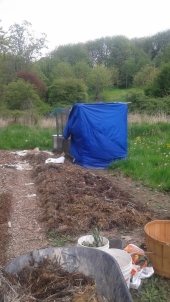


6 Ways To Keep Chickens - pdf download
will be released to subscribers in:
soon!







 2
2




"You must be the change you want to see in the world." "First they ignore you, then they laugh at you, then they fight you, then you win." --Mahatma Gandhi
"Preach the Gospel always, and if necessary, use words." --Francis of Assisi.
"Family farms work when the whole family works the farm." -- Adam Klaus




 . Do you think the electric netting and forest/salmonberry bramble to hide in will be enough to keep the ducks safe enough that the 12 ducks reproduce as fast/faster than they get eaten?
. Do you think the electric netting and forest/salmonberry bramble to hide in will be enough to keep the ducks safe enough that the 12 ducks reproduce as fast/faster than they get eaten? 



"You must be the change you want to see in the world." "First they ignore you, then they laugh at you, then they fight you, then you win." --Mahatma Gandhi
"Preach the Gospel always, and if necessary, use words." --Francis of Assisi.
"Family farms work when the whole family works the farm." -- Adam Klaus








"You must be the change you want to see in the world." "First they ignore you, then they laugh at you, then they fight you, then you win." --Mahatma Gandhi
"Preach the Gospel always, and if necessary, use words." --Francis of Assisi.
"Family farms work when the whole family works the farm." -- Adam Klaus
 2
2




 1
1




 .
. 3
3





|
My favorite is a chocolate cupcake with white frosting and tiny ad sprinkles.
permaculture bootcamp - gardening gardeners; grow the food you eat and build your own home
https://permies.com/wiki/bootcamp
|

